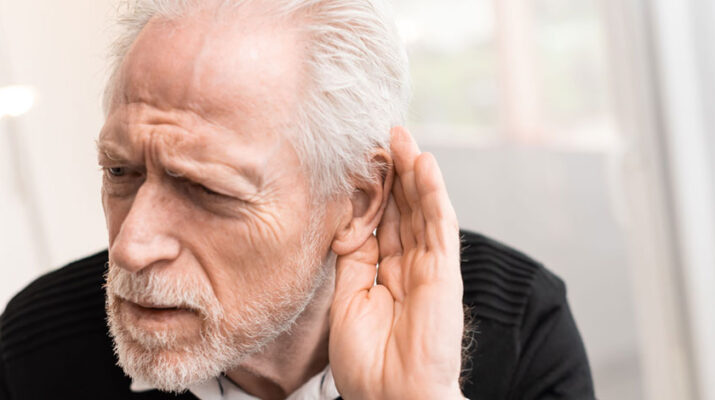Expert says some people with hearing loss won’t admit the problem and wait years to look for treatment
By Deborah Jeanne Sergeant
Specialists in the ears and hearing care for not only the actual function of hearing but may also deal with other issues and concerns such balance. Audiologists are one example.
“Most audiologists have a clinical doctorate degree and are experts in the field of hearing health and balance disorders,” said Gregory Horton, audiologist and administrator at Rochester Hearing & Speech Center. “They are working to improve quality of life issues related to ear-related concerns.”
He listed reasons for seeing an audiologist to include suspected difficulty or change of hearing, tinnitus (known as “ringing in the ears”), balance disorders or vertigo, ear pain or sustained ear pressure, discharge or drainage from the ears, or impacted ear wax. Numerous conditions can affect hearing.
“Sometimes hearing loss can be related to other medical concerns and an audiologist may be the first health care provider to suspect this issue,” Horton said. “Once these conditions are suspected, a referral to an ear specialist (otolaryngologist) would be recommended for an additional evaluation.”
Sarah Lookabaugh, otolaryngologist with Rochester Regional Health, said that seeking professional help is warranted “if you notice progressive or sudden change in hearing, especially sudden. That makes us think that something is going on that we could treat and potentially restore the hearing.”
She added that if hearing is different side to side, constant ringing, buzzing or humming, or any trouble understanding what people say.
“If you have a history of a lot of ear infections. A lot of time if it’s swimmer’s ear or a middle ear infection, it can lead to scarring which can potentially affect your hearing as well,” Lookabaugh said.
Having these and other hearing concerns checked out can help identify if the problem is treatable. Diminished hearing may not mean a hearing aid is the answer. Sometimes, the cause is temporary or treatable. In some cases, a hearing aid may present the best way to solve the problem.
“A lot of patients we can manage with doing simple things like going to another room to talk face to face, or having the speaker not turn away while talking,” Lookabaugh said. “It’s not a guarantee you’ll get a hearing aid. Also, it doesn’t hurt to have an exam.”
Unfortunately, those whose hearing gradually diminishes don’t notice or don’t want to admit the problem for a long time. The loss occurs so slowly that many people might not notice.
What draws many people to seek treatment for hearing loss is “someone living with them or a kindly friend can’t tolerate it anymore that they need the television so loud, constantly repeating and they get frustrated,” said Michelle Gross, a resident of Brighton and member of the Hearing Loss Association of America Rochester Chapter.
“For people with progressive hearing loss, it’s easy to deny. You can make the television louder and it helps but you’re blasting out your spouse and children. Many deny hearing loss for seven years,” Gross said.
While a primary care provider may offer adequate hearing screening to recommend further testing, Gross said some rely upon less than scientific testing like whispering instead of using instruments.
“Tests where they talk with you aren’t that good because it’s a one-on-one situation and they’re facing you and the room is quiet,” Gross said. “Everything is ideal.”
That situation is far from the everyday situations where ambient sounds make it even tougher to hear. Delaying treatment only makes it harder to treat.
For those best treated with hearing aids, the performance and capabilities over instruments of even a decade ago has dramatically improved.
Salvatore Tuttobene, board-certified hearing instruments specialist with Clear Choice Hearing and Balance in Rochester, said that some people assume that hearing aids are the same as their parents’ or grandparents’ aids from decades ago, when clunky, behind-the-ear aids were the only styles available.
“Modern hearing instruments are tiny,” he said. “Their Bluetooth capability allows them to stream television and the phone. Most people are flabbergasted when we tell them about these features. They can’t believe how much the tech has advanced in a short period of time.”
Horton said that it is never too late to begin protecting what hearing remains. People routinely exposed to loud sound should plan ahead with the proper hearing protection devices.
“Hearing loss is often a quality-of-life issue and when people experience changes to their hearing, they may find that they start to withdraw from interactions with friends, family and loved ones,” he said.
Audiologists can help patients find the right solution for the individual, such as musician, hunter, construction worker, firefighter and factory worker. These individuals need to hear some sounds but must also block the damaging sounds.

